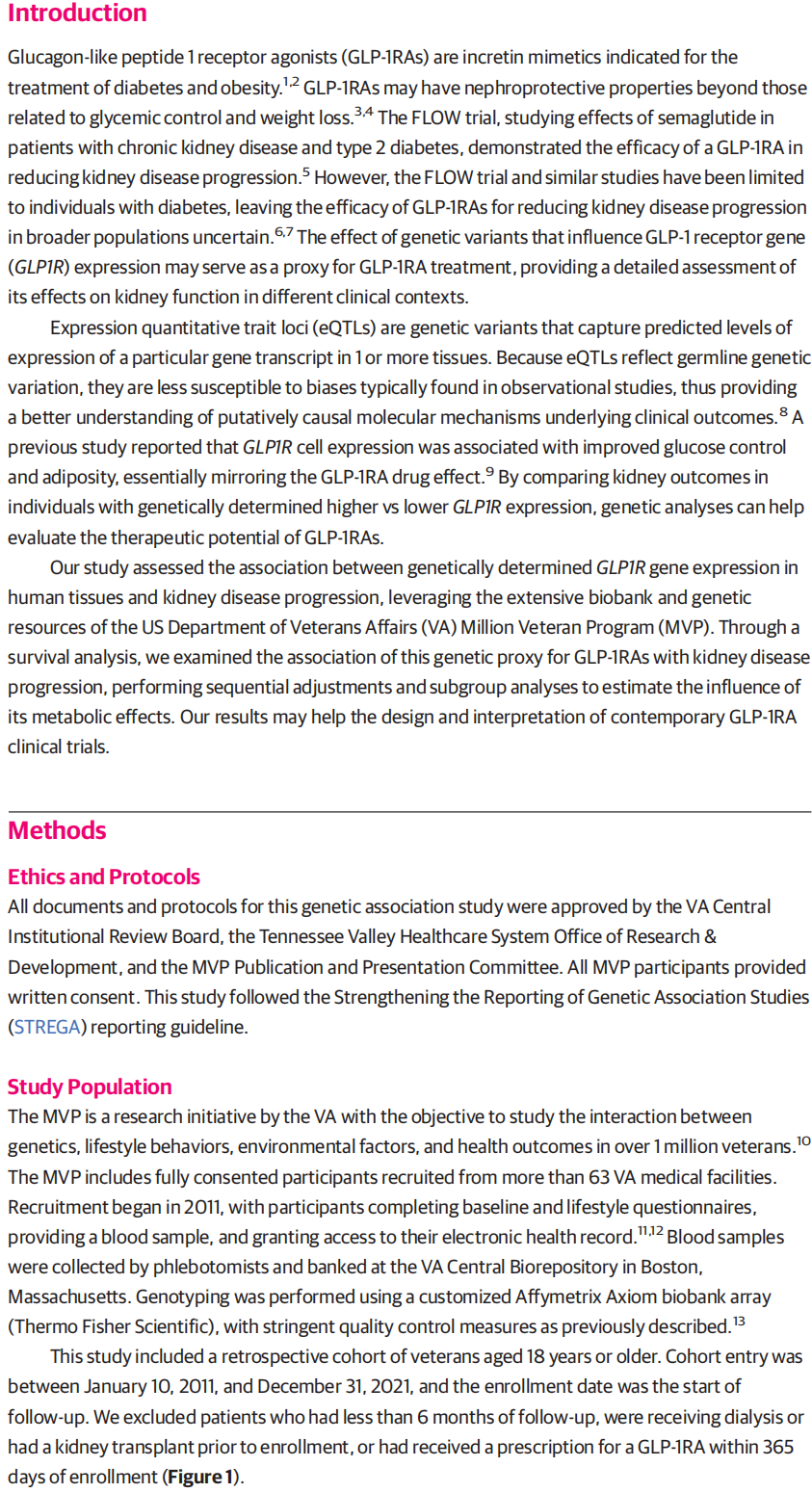

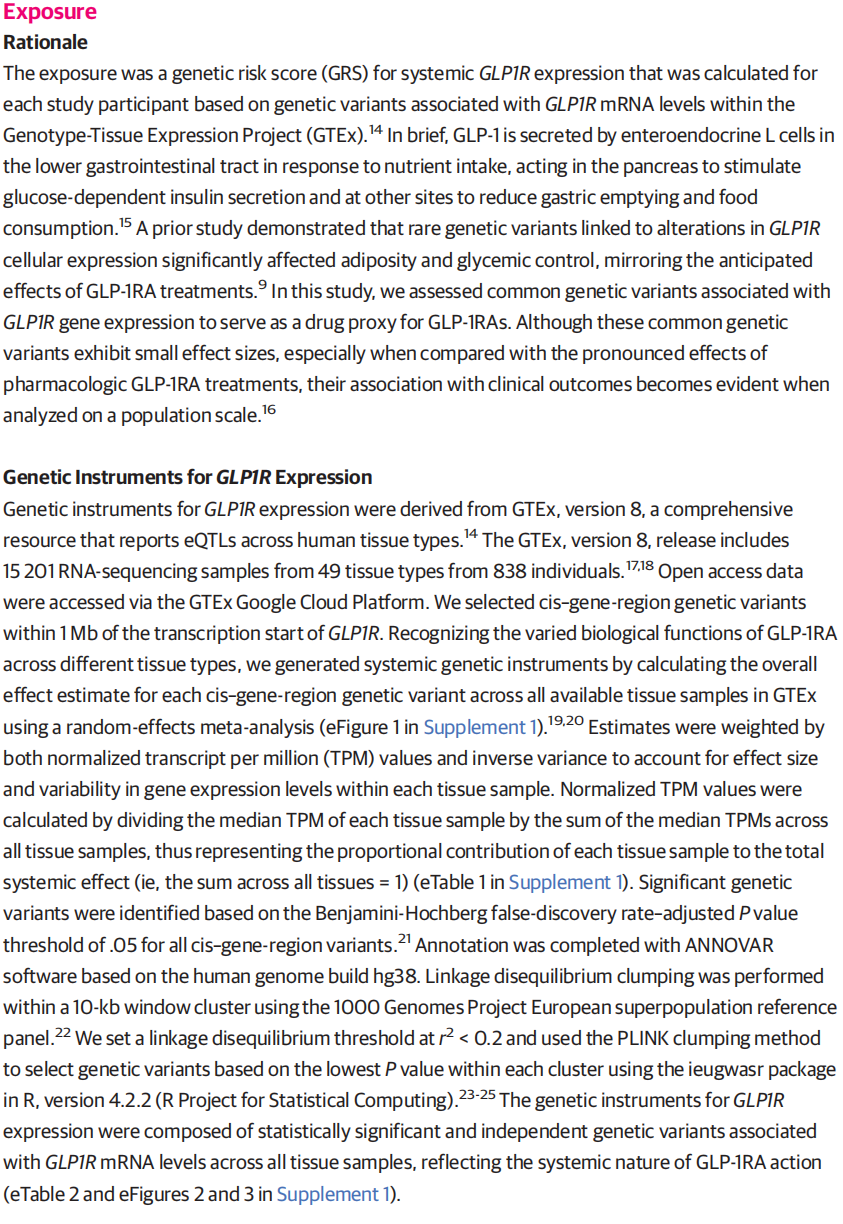
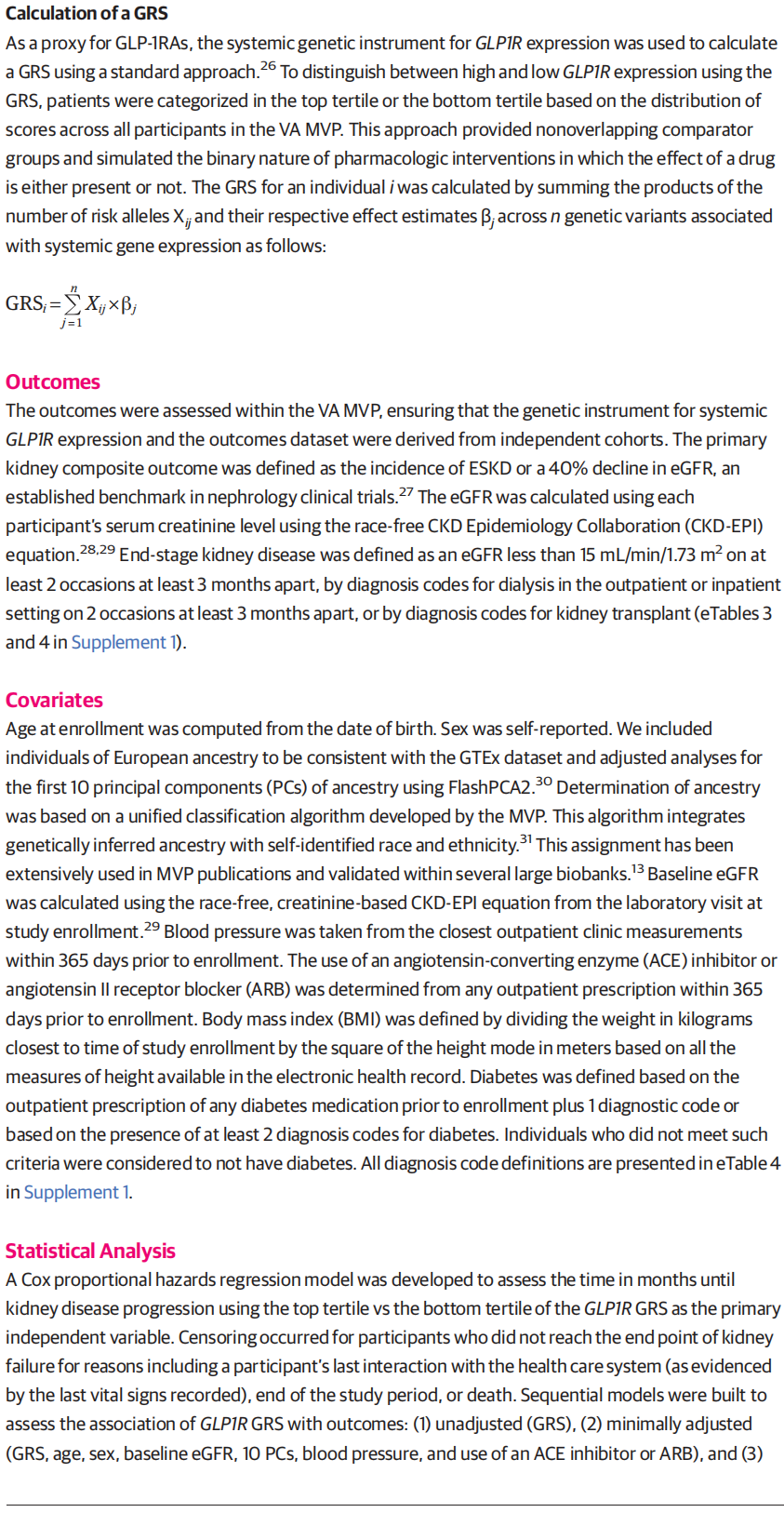
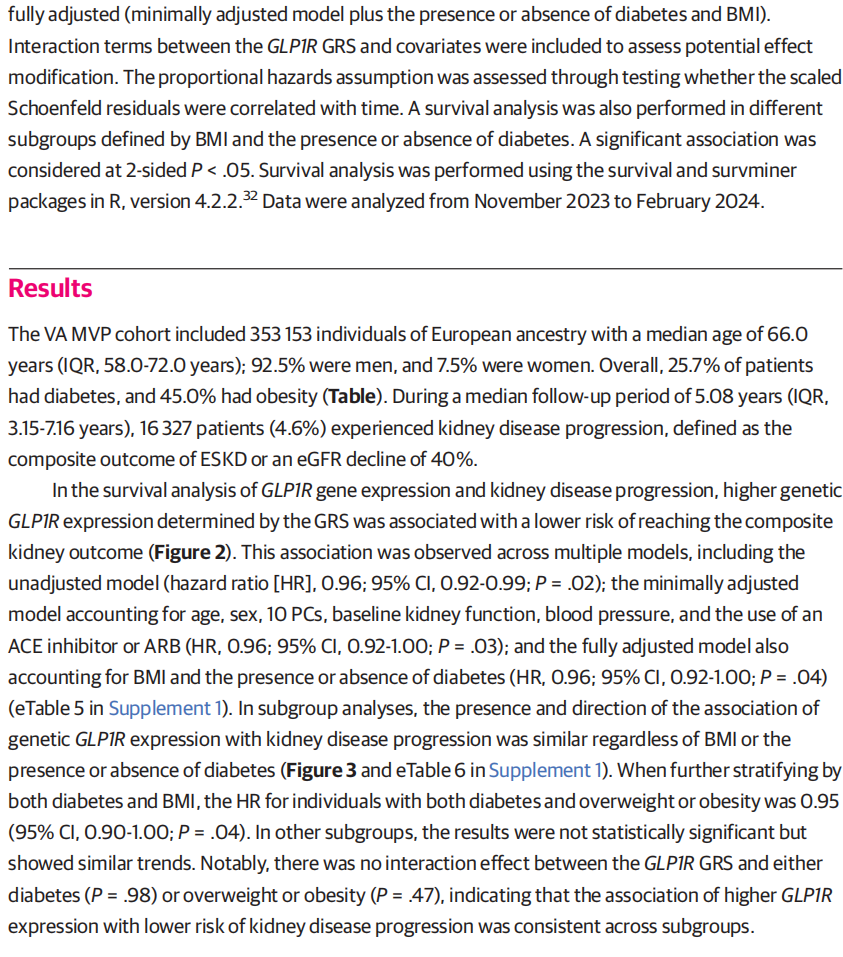
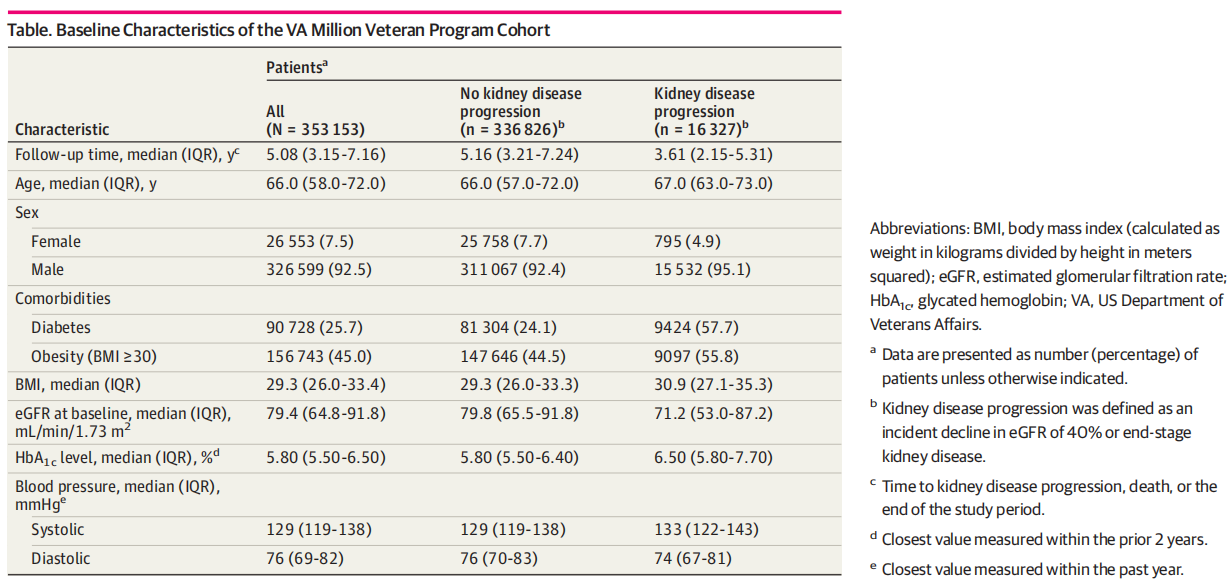
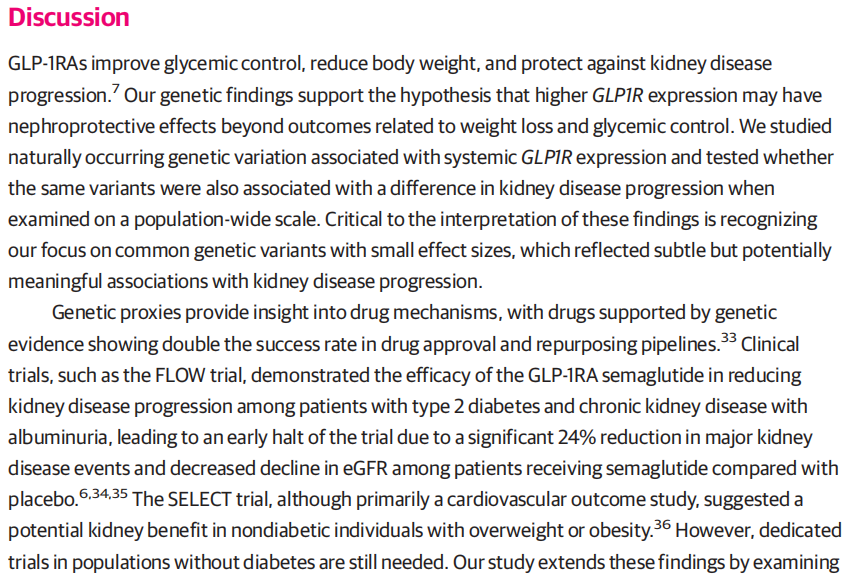
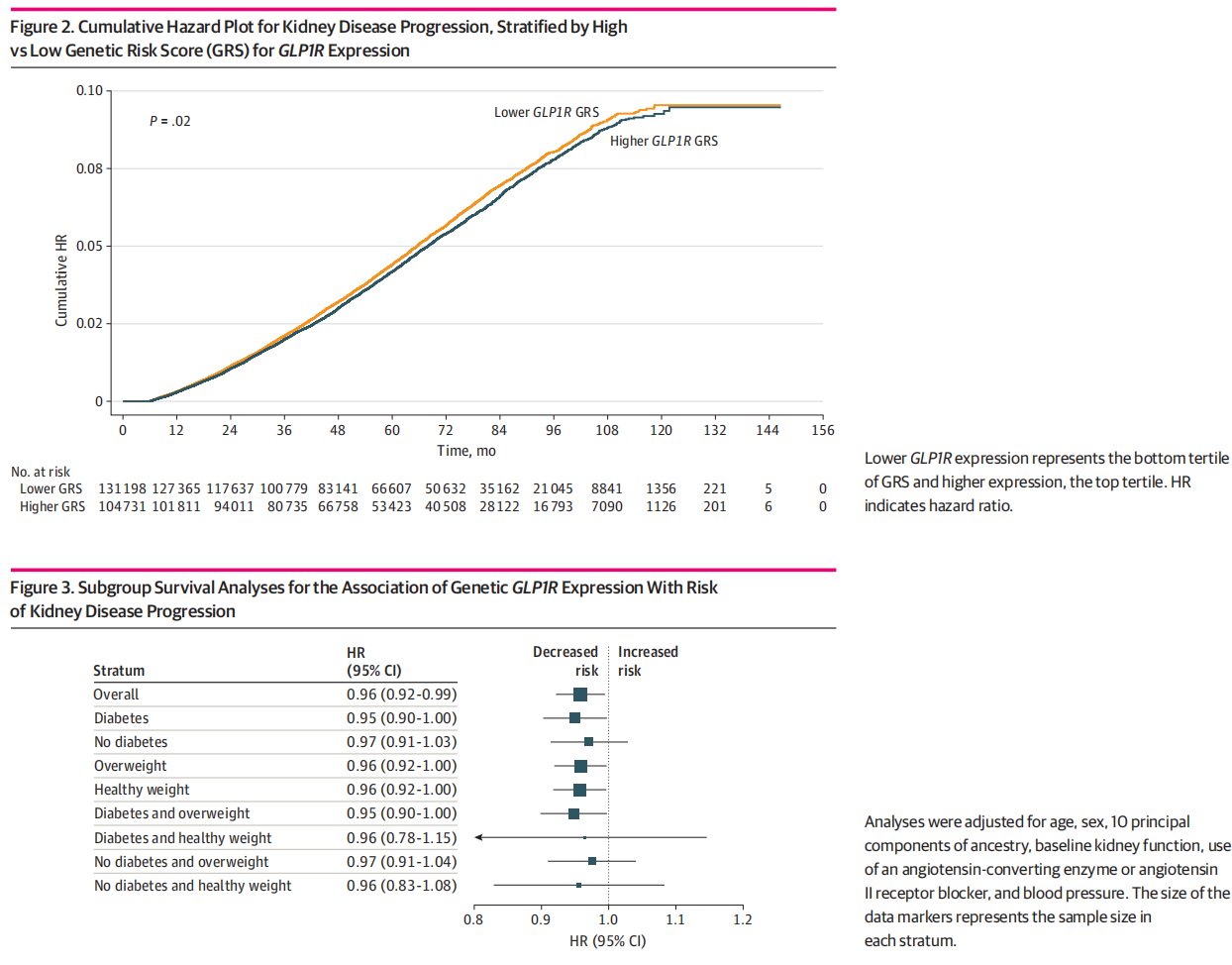
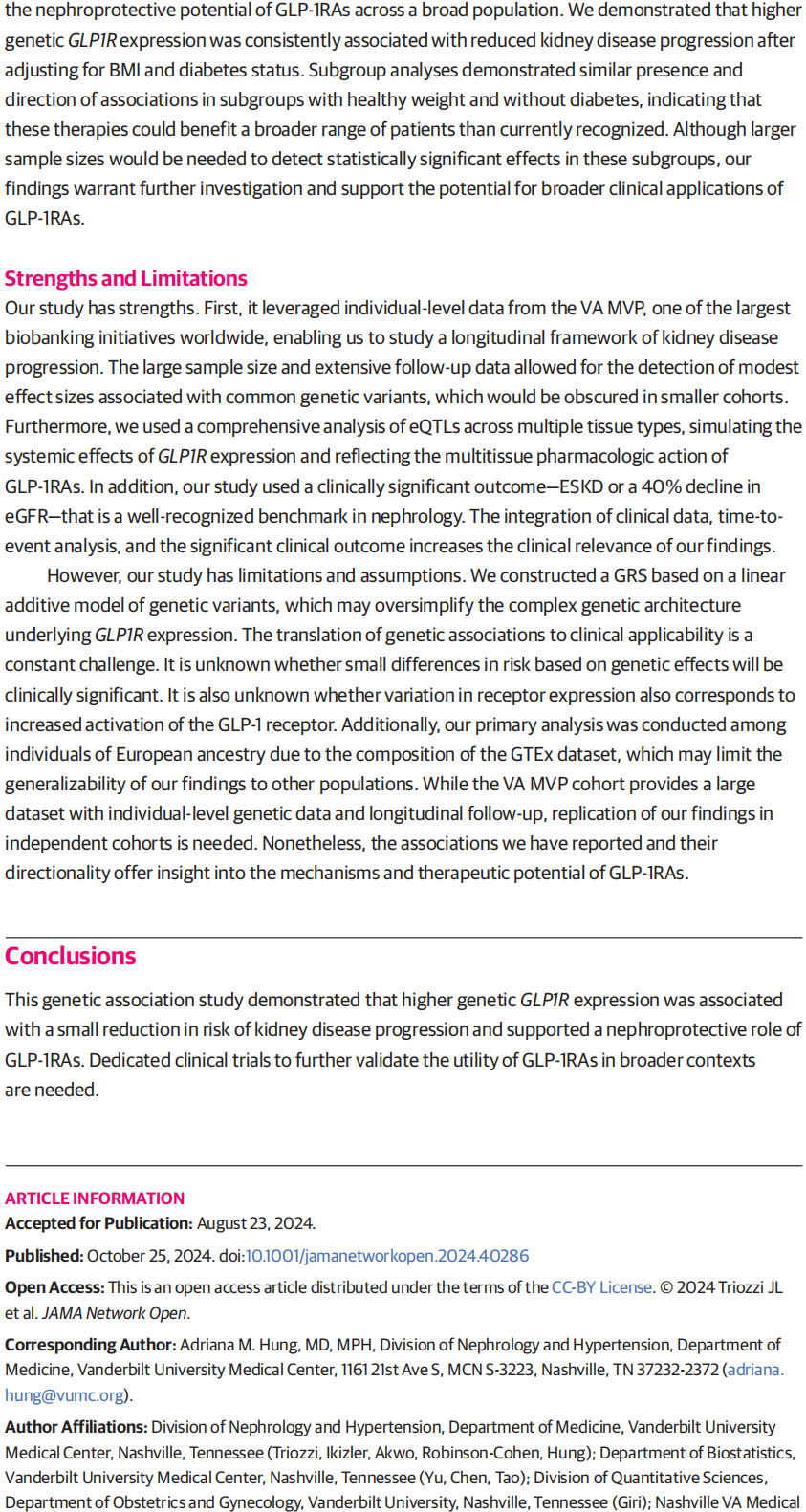
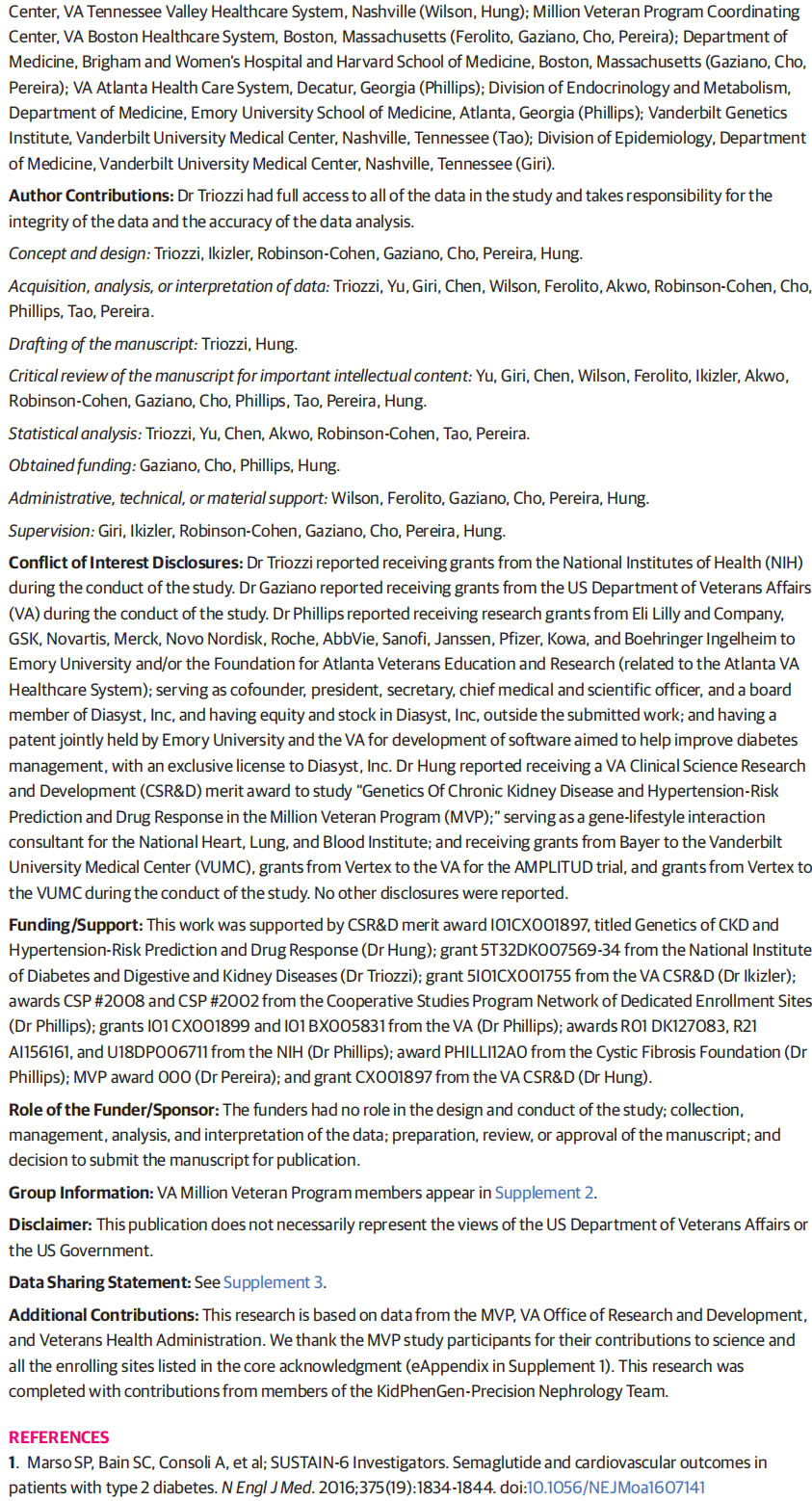
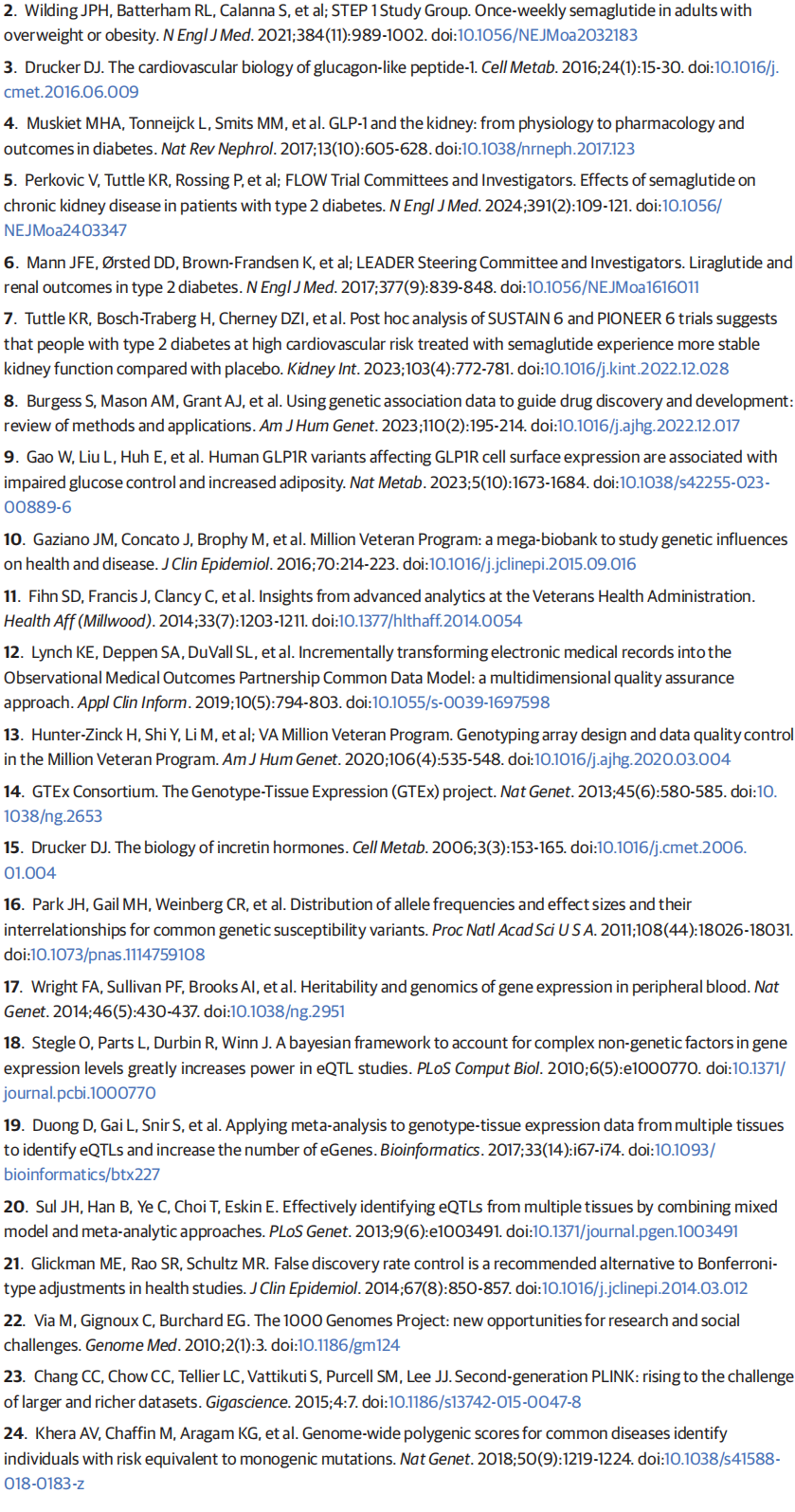
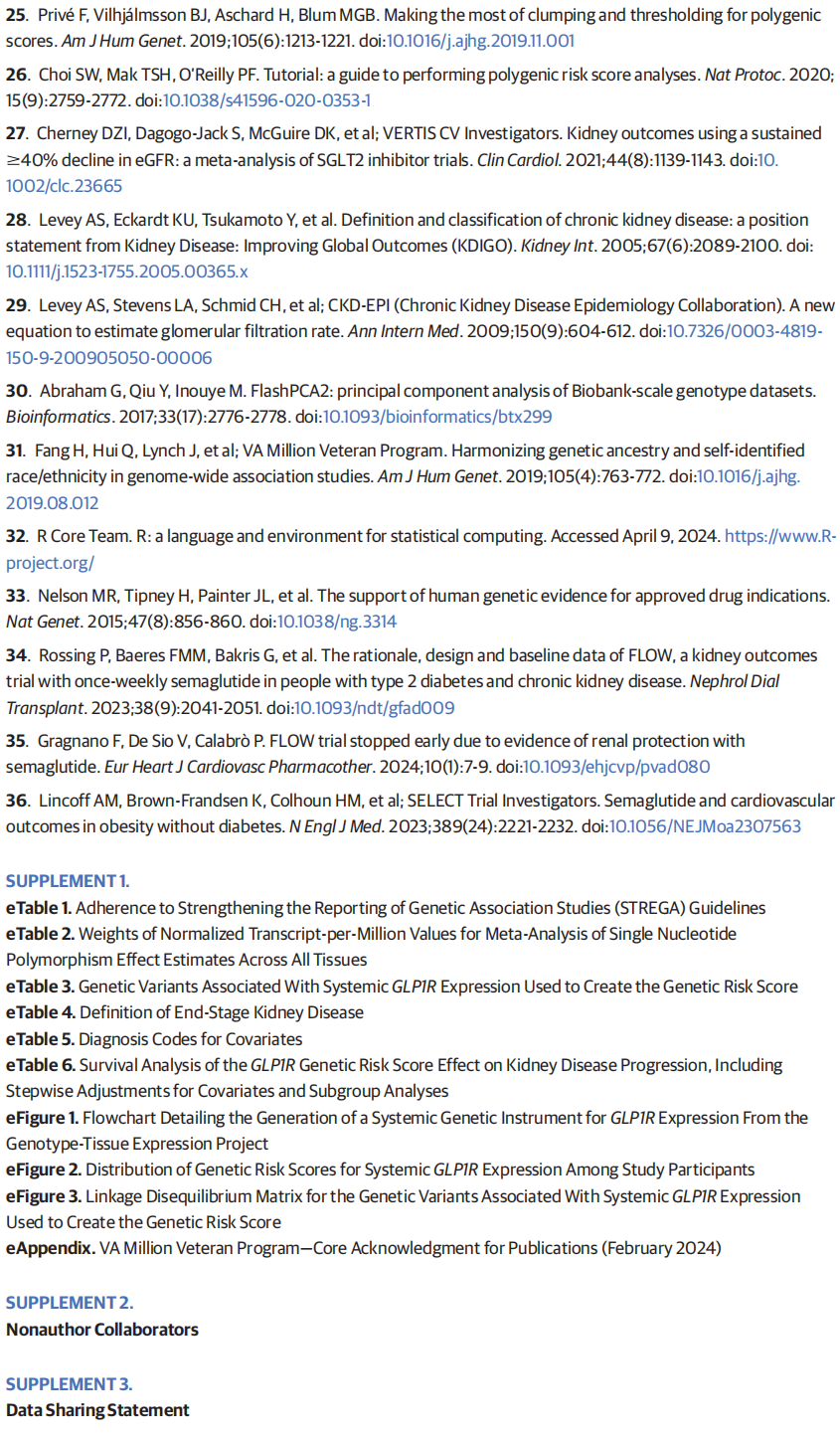
This article is excerpted from the GLP1R Expression and Kidney Disease Progression by Wound World.
Jefferson L. Triozzi, MD, MSCI; Zhihong Yu, MS, PhD; Ayush Giri, MS, PhD; Hua-Chang Chen, PhD; Otis D. Wilson, BBA; Brian Ferolito, MS; T. Alp Ikizler, MD; Elvis A. Akwo, MD, MS; Cassianne Robinson-Cohen, PhD; John Michael Gaziano, MD, MPH; Kelly Cho, PhD, MPH; Lawrence S. Phillips, MD; Ran Tao, PhD; Alexandre C. Pereira, MD, PhD; Adriana M. Hung, MD, MPH; for the VA Million Veteran Program
Key Points
Question Are glucagon-like peptide 1 receptor agonists (GLP-1RAs) associated with kidney disease progression?
Findings In this genetic association study of 353 153 adults, higher genetic GLP1R gene expression as a proxy for GLP-1RAs was associated with a small reduction in the risk of kidney disease progression, even after adjusting for obesity and diabetes.
Meaning These findings support a nephroprotective role of GLP-1RAs.
Abstract
IMPORTANCE Glucagon-like peptide 1 receptor agonists (GLP-1RAs) may have nephroprotective properties beyond those related to weight loss and glycemic control.
OBJECTIVE To investigate the association of genetically proxied GLP-1RAs with kidney disease
DESIGN, SETTING, AND PARTICIPANTS This genetic association study assembled a national retrospective cohort of veterans aged 18 years or older from the US Department of Veterans Affairs Million Veteran Program between January 10, 2011, and December 31, 2021. Data were analyzed from November 2023 to February 2024.
EXPOSURES Genetic risk score for systemic GLP1R gene expression that was calculated for each study participant based on genetic variants associated with GLP1R mRNA levels across all tissue samples within the Genotype-Tissue Expression project.
MAIN OUTCOMES AND MEASURES The primary composite outcome was incident end-stage kidney disease or a 40% decline in estimated glomerular filtration rate. Cox proportional hazards regression survival analysis assessed the association between genetically proxied GLP-1RAs and kidney disease progression.
RESULTS Among 353 153 individuals (92.5% men), median age was 66 years (IQR, 58.0-72.0 years) and median follow-up was 5.1 years (IQR, 3.1-7.2 years). Overall, 25.7% had diabetes, and 45.0% had obesity. A total of 4.6% experienced kidney disease progression. Overall, higher genetic GLP1R gene expression was associated with a lower risk of kidney disease progression in the unadjusted model (hazard ratio [HR], 0.96; 95% CI, 0.92-0.99; P = .02) and in the fully adjusted model accounting for baseline patient characteristics, body mass index, and the presence or absence of diabetes (HR, 0.96; 95% CI, 0.92-1.00; P = .04). The results were similar in sensitivity analyses stratified by diabetes or obesity status.
CONCLUSIONS AND RELEVANCE In this genetic association study, higher GLP1R gene expression was associated with a small reduction in risk of kidney disease progression. These findings support pleiotropic nephroprotective mechanisms of GLP-1RAs independent of their effects on body weight and glycemic control.












This article is excerpted from the GLP1R Expression and Kidney Disease Progression by Wound World.
